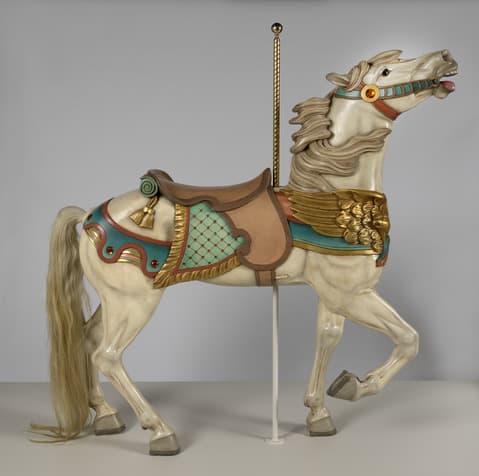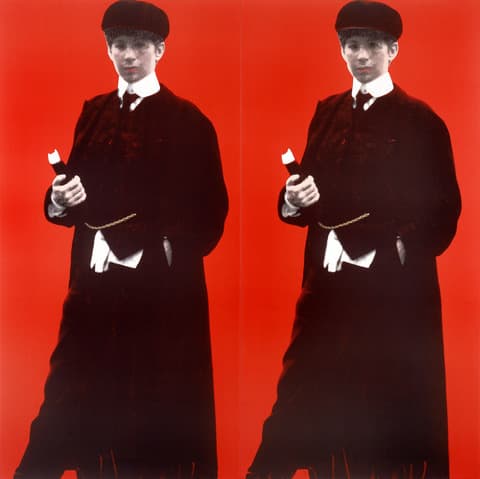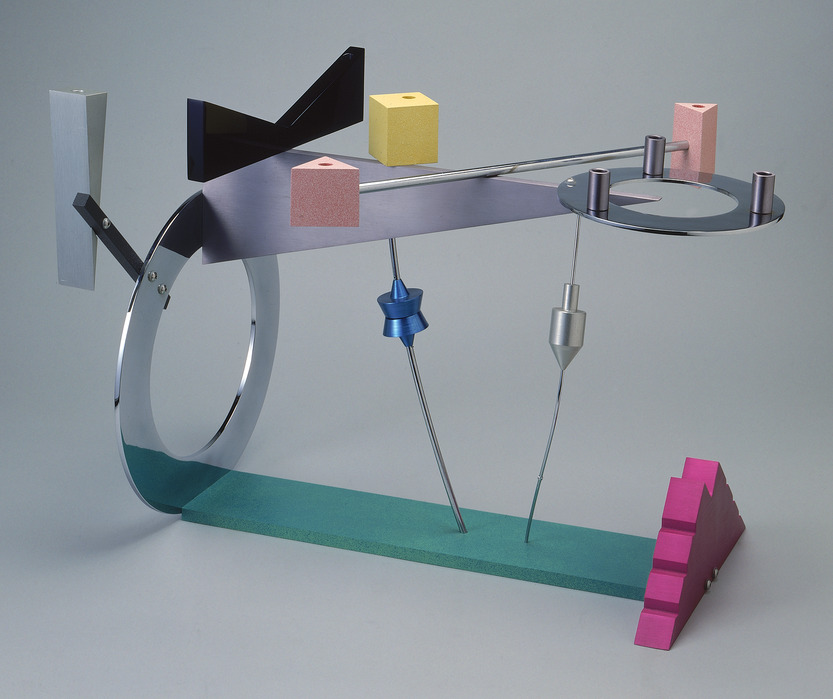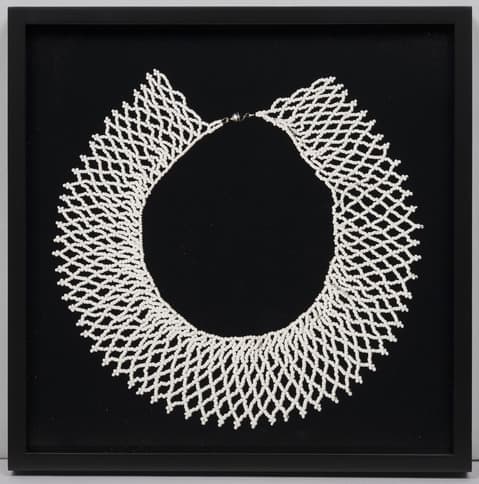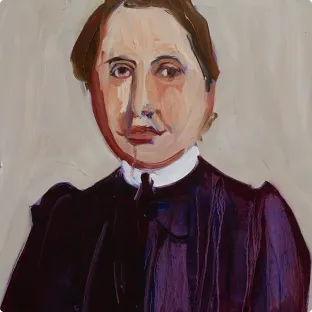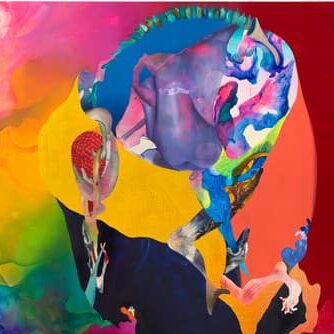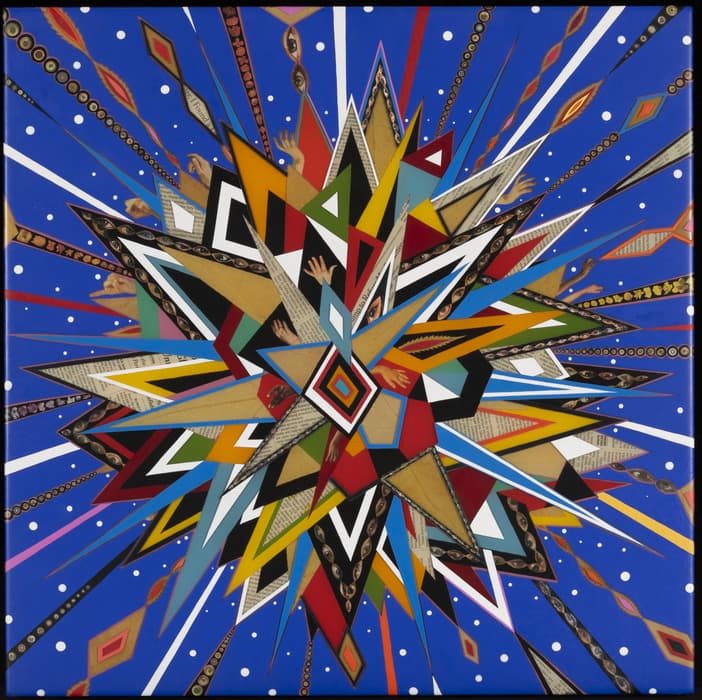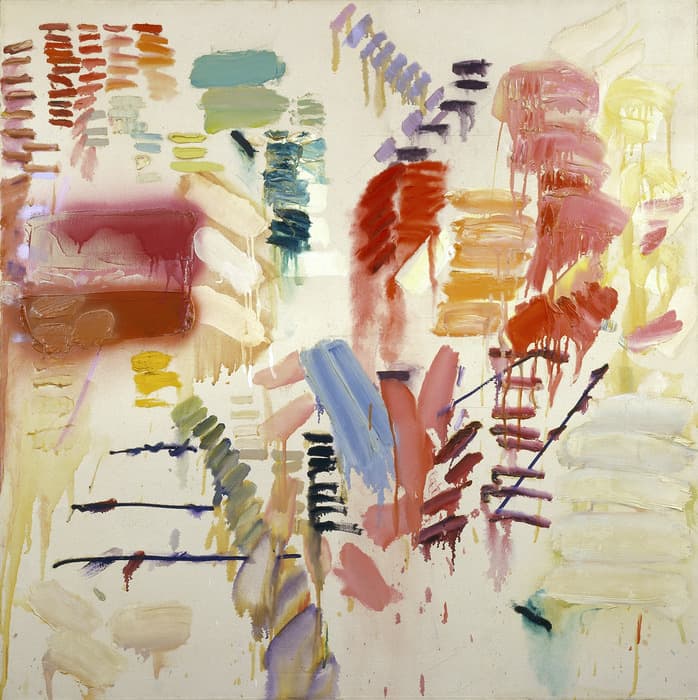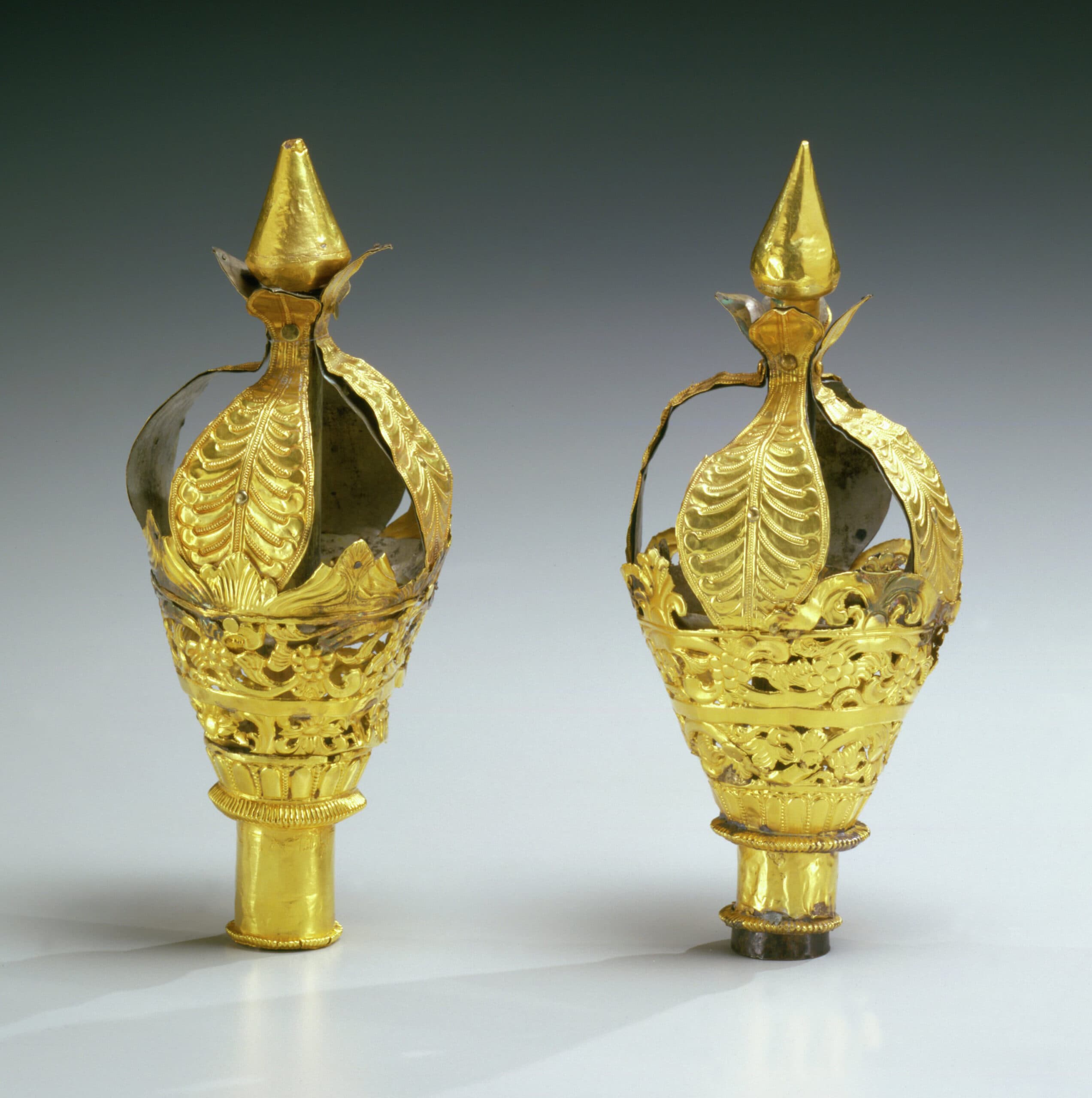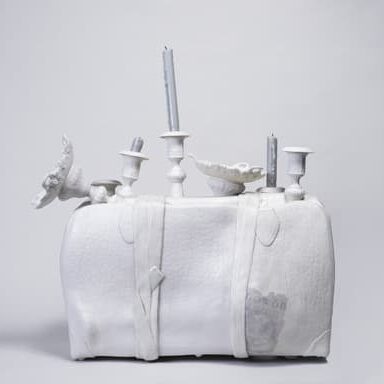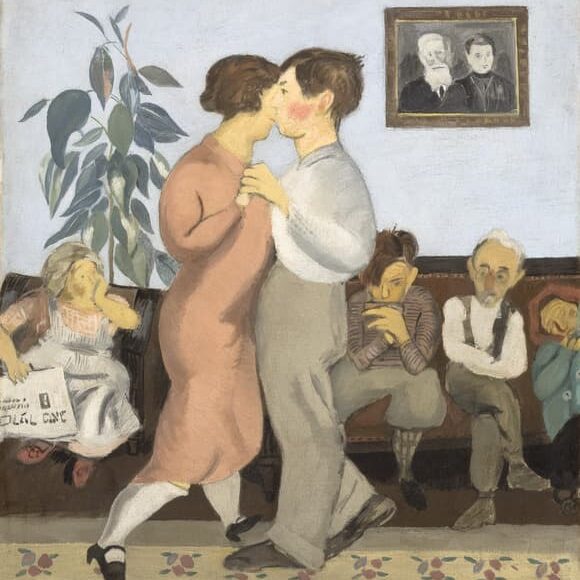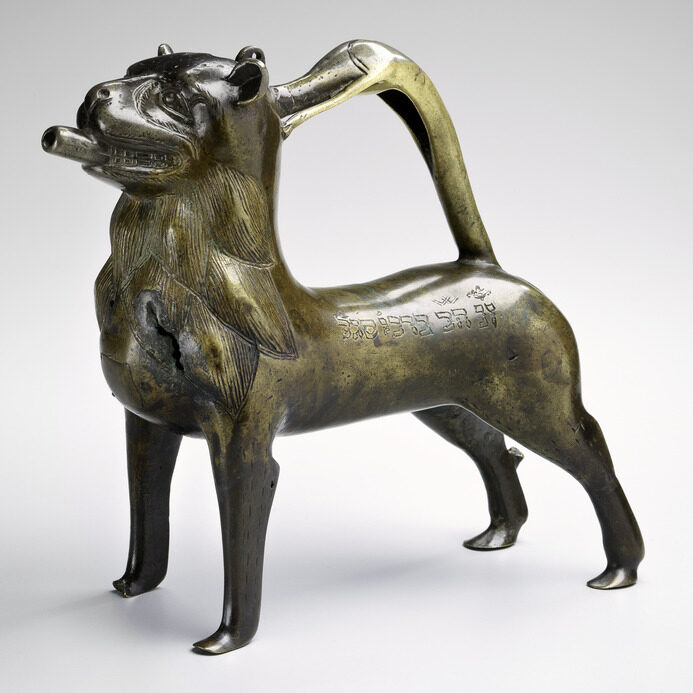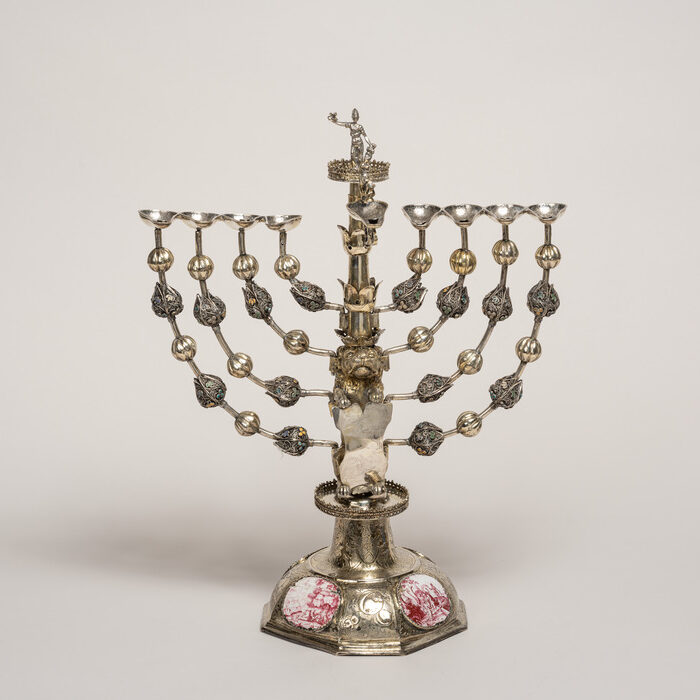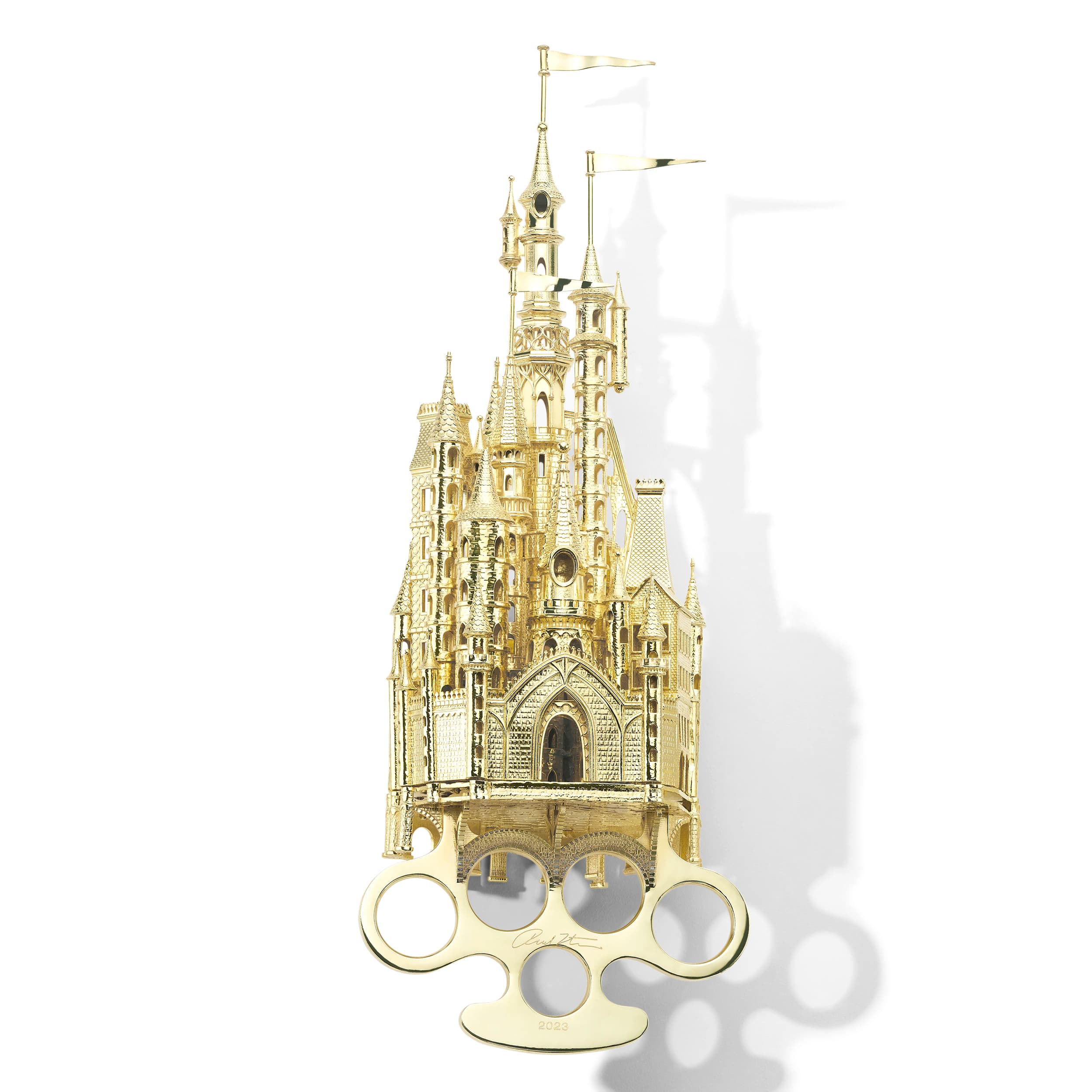
Rings Based on the Commission Will Be Available for Sale at the Museum’s Cooper Shop and IPPOLITA Manhattan Flagship Boutique
New York, NY, March 20, 2023–The Jewish Museum commissioned artist Rachel Feinstein to create a new piece of Judaica for the Museum’s collection. Inspired by two historical forms—medieval-style architectural Jewish marriage rings and tower-shaped ceremonial spice containers, both represented in the Jewish Museum’s collection—Feinstein, in collaboration with IPPOLITA, created the “Marriage Ring,” a fantastical ring, almost a foot tall, in the shape of a castle rendered in sterling silver dipped in 18-karat gold. The ring will be on view in the Museum’s collection exhibition Scenes from the Collection beginning in May.
This elaborate piece was designed in collaboration with and crafted by IPPOLITA. Feinstein and Ippolita Rostagno, CEO and Founder of IPPOLITA, are also collaborating on a series of four different editions of related rings that will be for sale at the Jewish Museum Shop.
Claudia Gould, the Museum’s Helen Goldsmith Menschel Director, approached Feinstein about the commission in 2019 during the Museum’s presentation of her first solo museum exhibition in the United States. Feinstein’s Jewish background and longstanding engagement with religious subjects as well as her pointed interest in material culture made her an ideal artist to engage for a Judaica commission. Feinstein studied religion and studio art while an undergraduate at Columbia University. She frequently turns to subjects with roots in religion and mythology: Biblical figures, satyrs, and saints appear alongside protagonists from fairy tales or fantastic characters inspired by her personal history.
Gould says, “I am proud of the contemporary Judaica commission program the Museum has built. It is a thrill to complete this wonderful partnership with Rachel and Ippolita, my last as the Museum’s director, resulting in this stunning ring.”
Feinstein’s designs draw on a rare but iconic form of Judaica, the “mazal tov ring.” The earliest known examples of this form, which date to the Middle Ages, feature architectural structures that resemble houses or castles, synagogues, or the ancient temple in Jerusalem. Like the chuppah, or marriage canopy, the architectural element of the rings may symbolize the marital home of the new couple upon their marriage or the house as a metaphor for the wife/bride, alluding to the Talmudic verse: “His house is his wife.”
Feinstein’s ring engages the symbolism, ceremonial use, and materiality of the Jewish marriage ring, which she then infuses with salient aspects of her own practice. She underscores the castle as enchanting and ethereal, as in a fairytale, but mounts its “princess exterior” on a heavy and even menacing setting—a four-fingered “knuckle duster”—rather than a single band. This move is typical for Feinstein, who often recasts myths and stories to center women’s perspectives. Her treatment of the marriage ring suggests both the romance of marriage and the possibility of violent coercion. The marriage ring, however, is traditionally worn by a woman, giving this image of weaponized domesticity a feminist edge. With its exaggerated size and invocations of fairytale royalty, Feinstein’s commission plays with the transactional underpinnings of the marriage ceremony.
The editioned ring designs available for sale include four adaptations of the commissioned ring: “Talia’s Ring,” a smaller version of the fantasy castle made for a single finger in 18-karat gold, will retail for $36,000; “Castle on the Rock,” a series of one-of-a kind rings in 18-karat gold with chrysoprase and malachite bases, will retail for $18,000; the “Fan Castle Ring,” a more minimalist 3-D variation of the design, will retail for $7,200 in 18-karat gold and for $500 in sterling silver. All ring designs will be available for sale through the Jewish Museum’s Shop and online at shop.thejewishmuseum.org, and The IPPOLITA Madison Avenue flagship and IPPOLITA.com.
Press contacts
The Jewish Museum: Daniela Stigh, [email protected] or 212.423.3330
IPPOLITA: Nicole Allen, [email protected] or 347.975.1182
